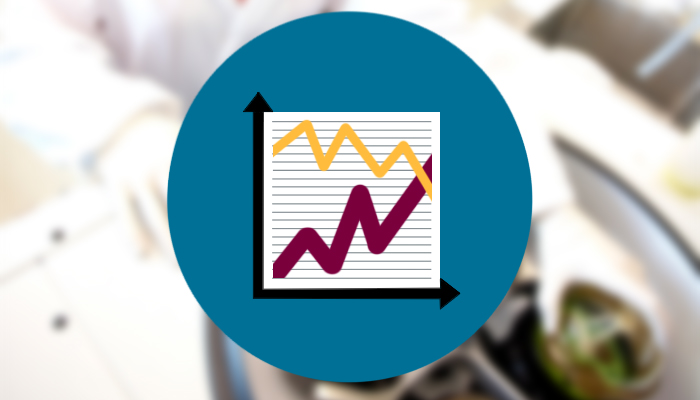What does the evidence show about cannabis for veterans with PTSD?

A 2016 survey of almost 2,800 regular force veterans found approximately one out of six (16.4%) reported posttraumatic stress disorder (PTSD). This Evidence Brief reviews the literature regarding prescribing cannabis for PTSD in a veteran popluation.
A 2016 survey of almost 2,800 regular force veterans found 40.8% reported chronic pain, such as from back problems (4.8%) or arthritis (29.1%). Approximately one out of six (16.4%) reported posttraumatic stress disorder (PTSD), one in five (20.5%) depression and one in seven (14.6%) anxiety. 1 This Evidence Brief reviews the literature regarding cannabis for PTSD.2
The psychological effects of trauma have been recognized for centuries: during the American Civil War it was referred to as “nostalgia” or “soldier’s heart,” during WWI “shell shock,” and in WWII “battle fatigue.” However, it was not until the 1980s, following research involving returning Vietnam War veterans, Holocaust survivors, sexual trauma victims and others, that PTSD was added as a diagnosis to the Diagnostic and Statistical Manual of Mental Disorders, the formal compendium of psychiatric disorders. Fear during and after a traumatic situation is natural and not everyone who experiences trauma goes on to develop PTSD; however, current thinking suggests that is not as rare as once thought.3
To be diagnosed with PTSD, an individual must have been exposed to a traumatic event and experienced all of the following for at least a month:4
- at least one re-experiencing symptom – flashback, bad dreams or frightening thoughts
- at least one avoidance symptom – avoiding places, events or objects that are reminders of the traumatic experience or thoughts or feelings related to it
- at least two arousal and reactivity symptoms – being easily startled, frequently or constantly feeling tense or “on edge,” difficulty sleeping or angry outbursts
- at least two cognition and mood symptoms – trouble remembering key features of the traumatic event, negative thoughts about oneself or the world, distorted feelings like guilt or blame, or loss of interest in enjoyable activities
In Canada, it has been estimated that as many as 2.5 million adult Canadians have suffered from PTSD in their lifetime, of which 8% are estimated to be members of the military, 8-32% police officers, 17% firefights and 26% paramedics. PTSD sufferers may find it difficult to maintain family and social relationships, education or careers, and their health may suffer. PTSD has been estimated to cost the Canadian economy $21 billion a year in lost productivity.5
PTSD has been linked to suicides by combat veterans.6 Officially, the Canadian government reports 158 Canadian service members died during the military operation in Afghanistan – including six who committed suicide while on tour. However, a Globe and Mail investigation in 2016 found an additional 70 suicides occurred among members of the armed forces after returning from Afghanistan.7
A variety of pharmaceutical and non-pharmaceutical treatments have been proposed for treating PTSD, including cannabis. The psychoactive chemicals in cannabis (cannabinoids) are hypothesized to help to modulate the release of certain neurotransmitters involved in mood and memory. Studies in animals have shown that cannabinoids may prevent stress from interfering with emotional functioning and memory, facilitate the extinction of fear responses, and produce an anti-anxiety-like effect.8 To date, human studies of medical cannabis for PTSD have been small or had methodological limitations.9 Randomized controlled trials have yet to be conducted to address the efficacy of cannabis as a treatment for PTSD compared to standard treatment or a placebo. Importantly, there are also reasons to be concerned about cannabis use in veterans. Two recent cross-sectional studies in the US found that cannabis use disorder in veterans was associated with self-harm and suicidality.10 11 Cross-sectional studies cannot reveal causality but these associations nonetheless reveal a potential for risk.
Even though the evidence base is incomplete and there is reason for caution, some veterans and practitioners have been willing to try medical cannabis for PTSD, as well as other medical issues. Between April 1 and July 31, 2017, the Ministry of Veterans Affairs reimbursed 5,190 veterans for medical cannabis. In May 2017, it lowered the daily limit covered by veterans’ benefits from ten to three grams a day (based on the average dose, although higher amounts would be covered if authorization was signed off by a medical specialist). As of September, 2017, all Operational Stress Injury (OSI) clinics established to provide assessments, treatment, prevention and support to serving Canadian Forces members and veterans with mental illness stopped prescribing cannabis altogether. An OSI physician, Dr. Anthony Njoku, was quoted by CBC as saying that due to a lack of information on the dosing and efficacy of medical cannabis and the kind of clients who would be most likely to benefit, “We’re making it up as we go along, unfortunately.”12 A clinical trial has been launched to evaluate the safety and efficacy of medical cannabis in treating PTSD but results may take several years to be made public.
It’s important to ensure this type of research is conducted and reliable answers are found. Service members are disproportionately affected by conditions for which cannabis has been speculated to be efficacious and they deserve high-quality evidence-based care. Current estimates are that there are approximately 700,000 armed forces veterans in Canada. In addition, there are approximately 739,800 RCMP or police veterans, 279,000 retired firefighters and 75,600 retired paramedics.13 Effective treatment of PTSD is badly needed and we need to know whether medical cannabis represents one such strategy.
Evidence - Other, Latest